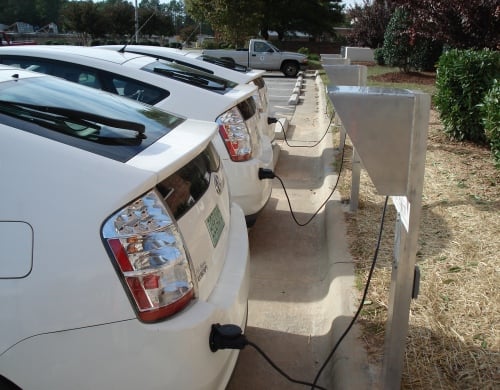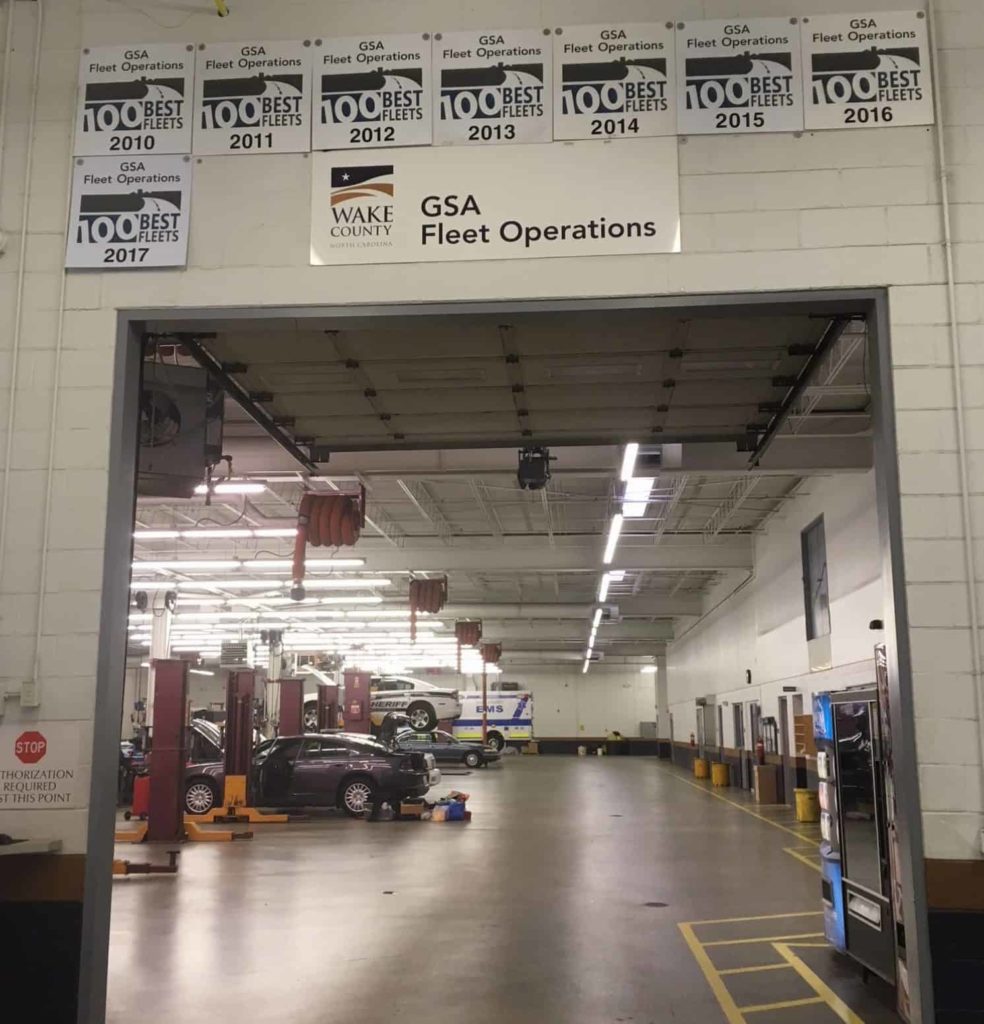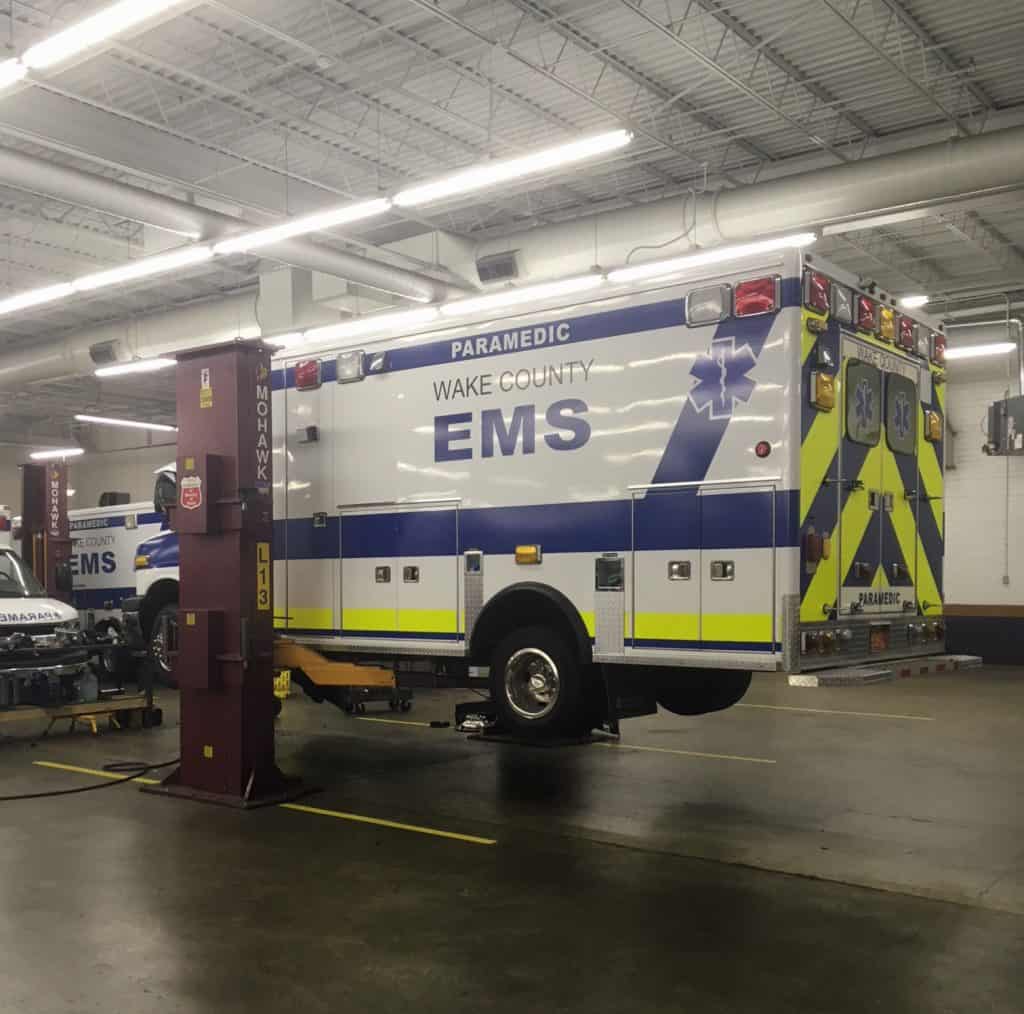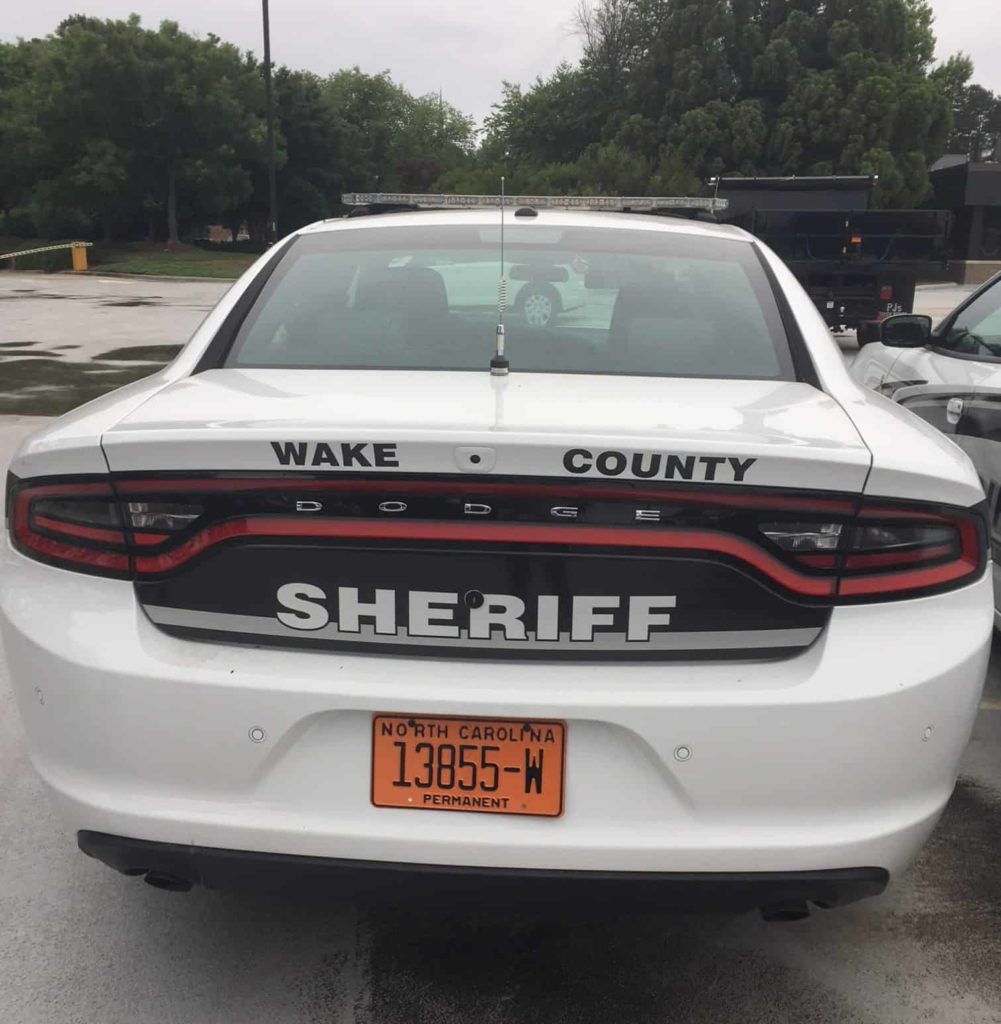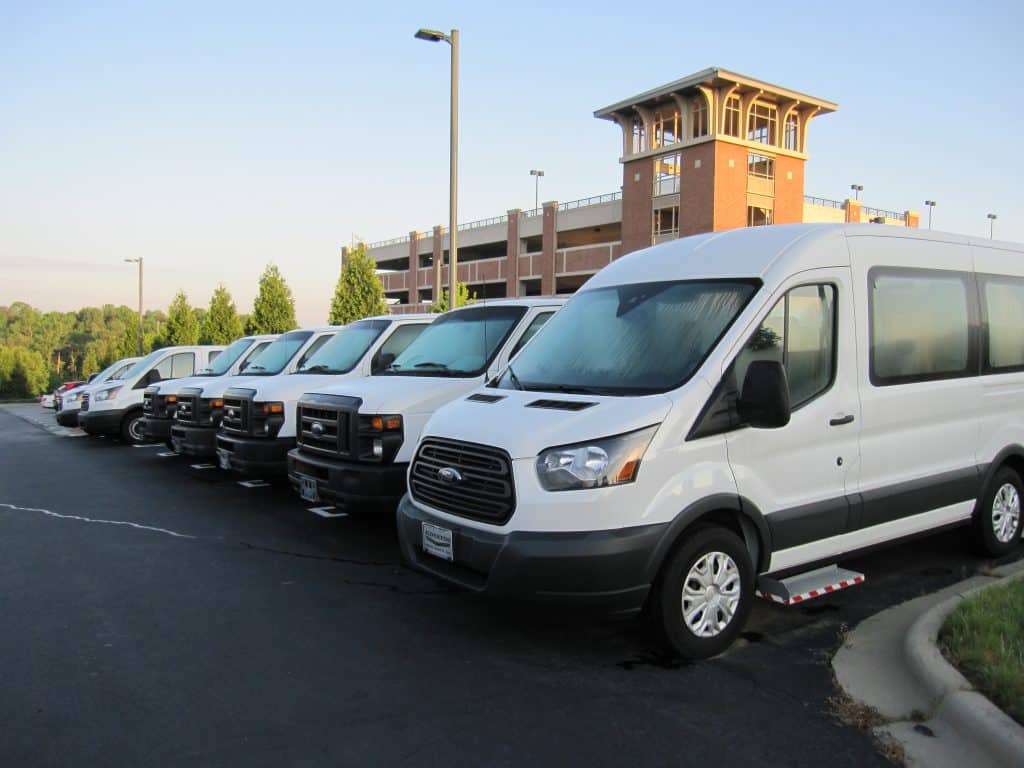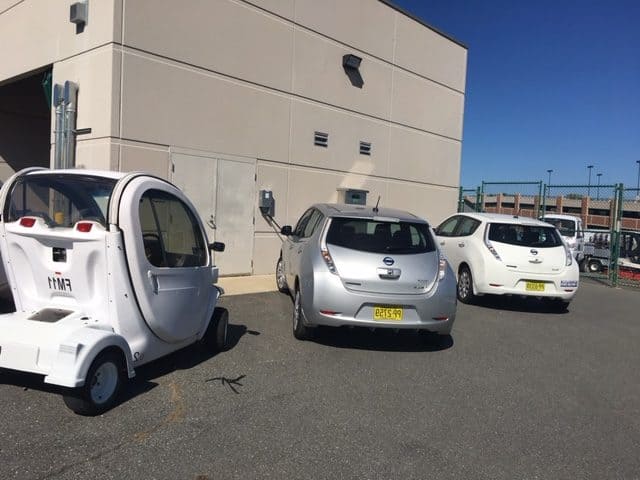The 12th annual North Carolina Mobile Clean Air Renewable Energy (CARE) awards and the NC Smart Fleet awards were announced as part of the 2018 Sustainable Fleet Technology Conference & Expo held at the Durham Convention Center in Durham, N.C. !
The Mobile CARE awards recognize transportation emission reduction efforts that are advancing alternative fuel and transportation technology activities in North Carolina. For Mobile CARE, candidates were sought in three main categories: Individual, Policy/Organization, and Fuel/Technology Providers.
This year, the judges selected Jason Wager, coordinator of the Centralina Clean Fuels Coalition (CCFC) for 18 years, for the Individual award; Town of Cary for the Policy/Organization award, and Novozymes for the Fuel/Technology Providers award.
Individual
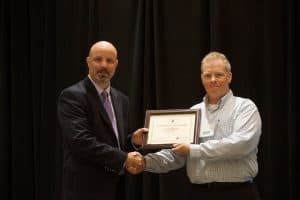
This award goes to an individual in North Carolina who-in both their professional and personal life- has worked to advance the adoption of sustainable transportation technologies and practices.
Jason Wager has been the coordinator of the Centralina Clean Fuels Coalition (CCFC) for 18 years. He provides leadership in the alternative fuels industry not only in the Charlotte region, but throughout the state and country. In North Carolina, Wager has been a long time education and outreach provider for the Clean Fuels Advanced Technology Program, a steering committee member for Plug-in NC and a member of NCSEA’s Electric Vehicle Working Group. He has organized countless educational activities related to clean transportation technologies in the Charlotte region. Nationally, Wager has served as a mentor to other Clean Cities coordinators and is a member of the Clean Cities Coordinator Council; these activities enable him to educate and assist new Clean Cities Coordinators.
Policy/Organization
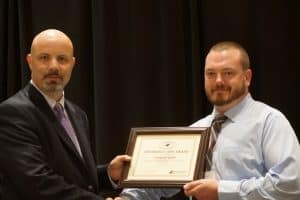
This award goes to a public or private organization that has created a policy that deserves to be held up as an example of a Best Practice that should be more widely adopted.
The Town of Cary first adopted a Strategic Energy Action Plan in 2012 and modified it in 2015. As one of the three focus areas for reducing energy use was fleet. The overall plan calls for reducing energy use by 13% by 2020. As part of their Strategic Energy Action Plan the town has created a Fleet Efficiency Standard Procedure, which puts in place standard procedures around purchasing more efficient vehicles, utilization of vehicles, driver training on how to drive more efficiently, route selection to reduce vehicle miles traveled, and mandated annual reporting. The Town of Cary has seen a 11% improvement in MPG across their fleet and a 17% reduction in vehicle miles traveled since implementing the standard procedures.
Fuel or Technology Provider
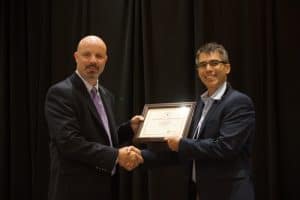
This award goes to a fuel or technology provider in the state of North Carolina that has worked to advance the adoption or availability of clean transportation technologies in the state.
With a headquarters in Franklinton, TN, Novozymes is one of the world’s largest manufacturers of enzymes that help break down organic matter into biofuels. Novozymes has committed to following the UN Sustainable Development Goals. Globally, Novozymes has committed to reducing their carbon footprint by 100 million tons by 2020; as of 2016 they were 69% of the way toward their target. Here in North Carolina, Novozymes has been consistently committed to supporting educational efforts that promote clean transportation technologies. They have helped support the Particle Falls exhibit, the alternative fuel tailgates, and have a long-standing relationship with NASCAR regarding education on ethanol.
N.C. Smart Fleet
N.C. Smart Fleet focuses on fleet commitment and accomplishments in reducing petroleum use, thus reducing CO2 emissions and other harmful emissions. North Carolina based fleets (both public and private sector) are recognized by the N.C. Clean Energy Technology Center as supporters, leaders or champions based on their sustainability practices.
The following organizations were recognized at the NC Smart Fleet awards event:
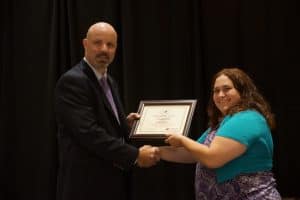
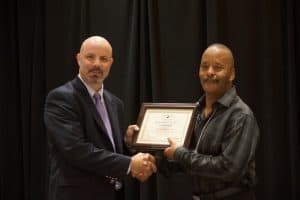
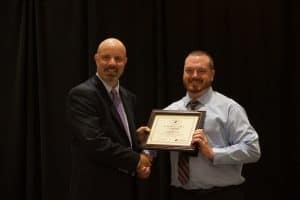
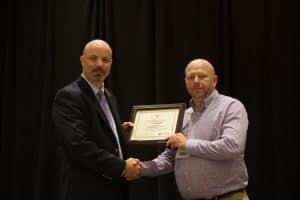
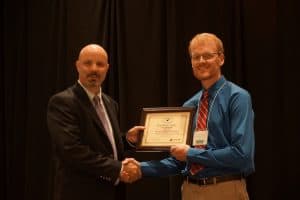
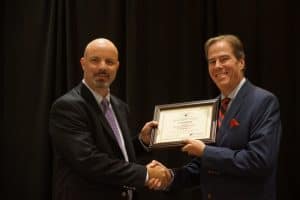
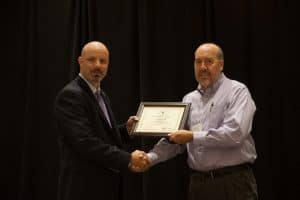
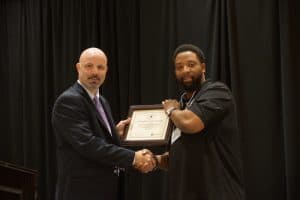
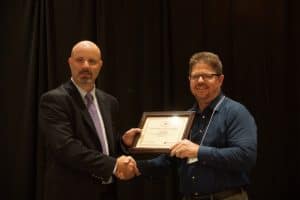
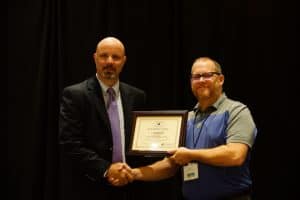
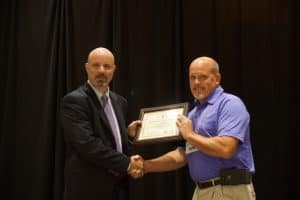
Champions
NC Smart Fleet Champions: BuildSense; City of Charlotte; City of Durham; Epes Transport System LLC; NCDOT Rail Division; Orange County; Town of Cary; City of Raleigh; UNC Charlotte
NC Smart Fleet Champions have achieved the highest level of recognition that we offer. Through demonstrated emissions reductions, improvements in fuel economy, use of alternative fuel vehicles, and use of best practices, these fleets serve as examples for the rest of us.
- BuildSense: BuildSense is a design-build general contractor with an emphasis on green-building in commercial and residential. Even among Champions, BuildSense stands out from the crowd with nearly 90% of their fleet being alt fueled, consuming almost 70% alternative fuel, including CNG, B100 biodiesel, and electricity. In 2018, they reduced their fuel use over 2017 consumption, and they burned only B100 in their biodiesel vehicles.
- City of Charlotte: The City of Charlotte continues remarkable progress in interdepartmental collaboration and management of fleet data, which gives them extra leverage to reduce air pollution and improve fuel economy across City functions. For the second year, their application includes Charlotte Mecklenburg Police Department; City Fire Department; Solid Waste Services; Water; Department of Transportation; Engineering and Property Management; Housing and Neighborhood Services. Nearly 22% of their total fleet is alt-fueled, including 30% of their light-duty fleet.
- City of Durham: In 2017 City of Durham engaged an array of efforts and policies to cut pollution and plan for fuel efficiency: They used GIS and telemetry data to scrutinize efficiencies, routes, and idling in Solid Waste. The City replaced a number of police cruisers with fuel efficiency as a criterion. The City made substantial facility improvements and started a new stringent right typing / rightsizing replacement program.
- EPES Transport System, Inc.: This freight hauler continues to run both liquefied natural gas (LNG) and compressed natural gas (CNG) trucks; and they continue to improve fuel economy through techniques such as monitoring tire pressure, mandating speed limits, purchasing trucks that are more aerodynamic, and using telematics. EPES continues testing several brands of trailer tails, and an electric APU device to further reduce fleet idling.
- Town of Cary: Despite continued growth of population and demands for public services, Town of Cary continues to lead in purchasing high MPG vehicles, robust use of smart-fleet technologies, and exemplary policies to push their Championship status. In 2018 they significantly increased their alt-fueled share of total fleet to almost 5 and a half percent. The Town’s formal rules and guidance on clean transportation includes fuel efficiency, purchasing, right-sizing, and route-planning policies.
- UNC Charlotte: UNC Charlotte’s steady Championship for clean transportation policies and practices shows in their 2018 application. After last year’s surge in use of electric vehicles from 48 new charging stations, light rail entering campus, and a new bike-share system, this year UNC-C tracked reductions in both vehicle miles traveled (VMT) and fuel consumption.
- NCDOT Rail Division: NCDOT Rail Division is a new member of NC Smart Fleet for 2018. They run 8 locomotives for passenger service between Raleigh and Charlotte, and they have a strong history of innovation in pollution reduction. Despite new routes and increased vehicle miles traveled due to growth of demand for their services, the Rail Division continues to lead in deploying emissions reduction technologies.
- Orange County: Orange County has been diligently working to improve fuel economy and reduce transportation pollution for years. This year’s Championship application highlighted the more than 11% of their fleet being alt-fueled, including 23 hybrids and 15 bi-fuel propane vehicles. The County reports 100% of its diesel vehicles being equipped with particulate filters or other emission reduction equipment. The County also have an Annual Sustainability Report on fleet MPGs, their GHG emissions inventory is being updated to include fleet activities, and they are directly coordinating with departments to implement telematics systems and a CarShare program.
Leaders
NC Smart Fleet Leaders have demonstrated a commitment to improving the sustainability of their fleet and have implemented some clean transportation technologies and best practices in their fleets.
NC Smart Fleet Leaders: Charlotte Mecklenburg Schools; City of Winston-Salem; Durham City Transit Company (GoDurham); Gaston County; GoTriangle
- City of Winston-Salem: City of Winston-Salem is a new addition to the NC Smart Fleet program, and they join by reporting almost 2% of their fleet is alt-fueled, including 1.8% of whole fleet, 2.6% of light-duty fleet, using electric, hybrid, & CNG technologies. W-S reports an impressive 1% reduction in vehicle miles traveled (VMT) from 2017 to 2018. This is a 141,000-mile reduction.
- Charlotte-Mecklenberg School District Building Services Department: Charlotte-Mecklenburg Schools showed continued leadership in clean transportation in a number of ways. They significantly added to their alt-fueled fleet, increasing their percentage from less than 1% to more than 3.5% of fleet, using both dedicated and bi-fuel Propane, and gas-electric hybrids. They continue to use technologies such as anti-idling, GPS, route planning, and driver prompts to remember MPGs and Eco Driving techniques.
- Durham City Transit Company: Durham City Transit Company is a new addition to the NC Smart Fleet program, shining with more than 40% of their fleet being alt-fueled – 25 hybrid buses out of total fleet of 61.
- Gaston County: Gaston County is also a new addition to the NC Smart Fleet program, joining with more than 13% of their total fleet being alt-fueled. Almost 32% of their medium duty fleet runs on propane with the option to run gasoline.
- GoTriangle: GoTriangle is another new addition to the NC Smart Fleet program for 2018. This regional transit agency serves more than 1.7 million people per year and has noteworthy policies in regards to clean transportation. GoTriangle reports 100% of their fleet using particulate filters.
The Mobile CARE and NC Smart Fleet awards are given by the N.C. Clean Energy Technology Center with support by the N.C. Department of Transportation.

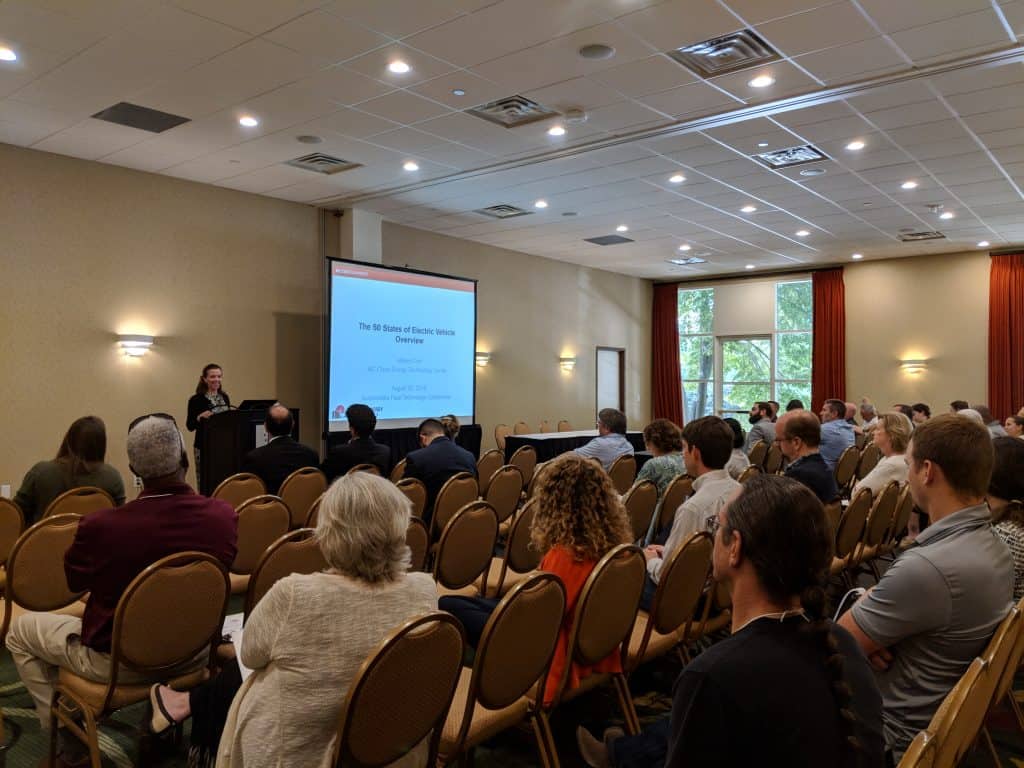
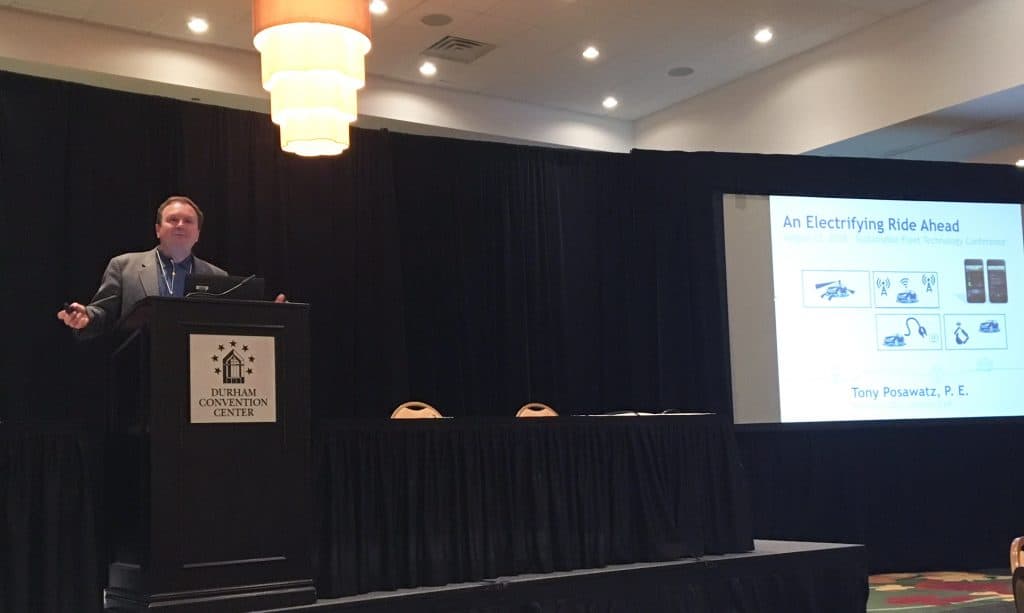
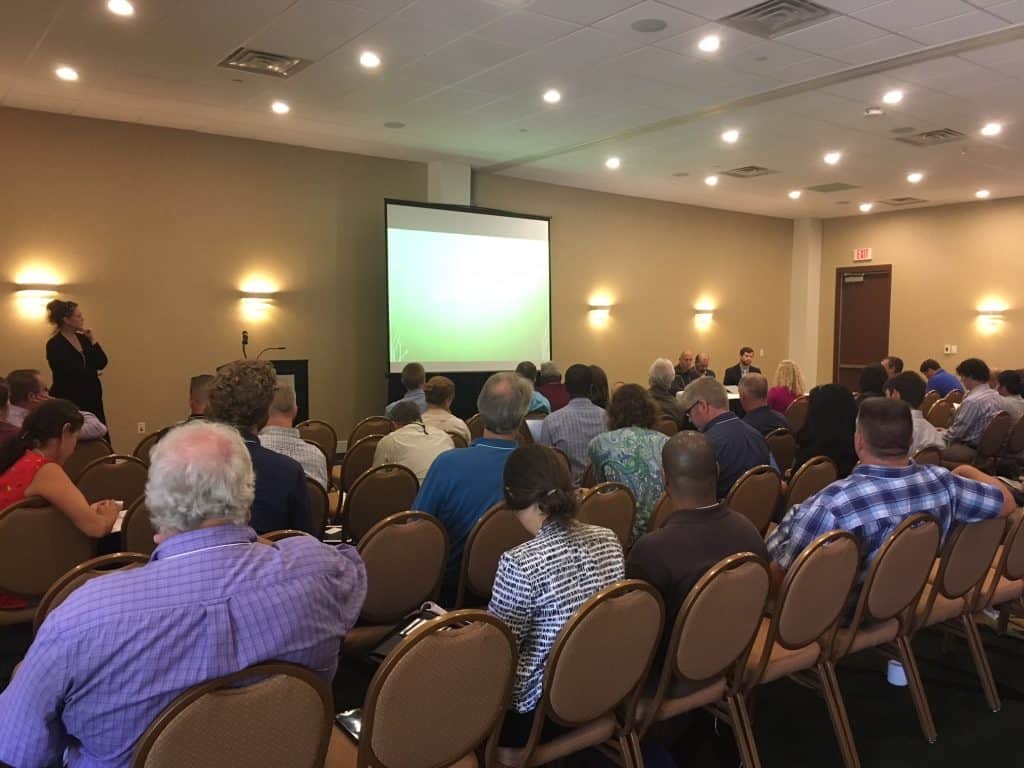
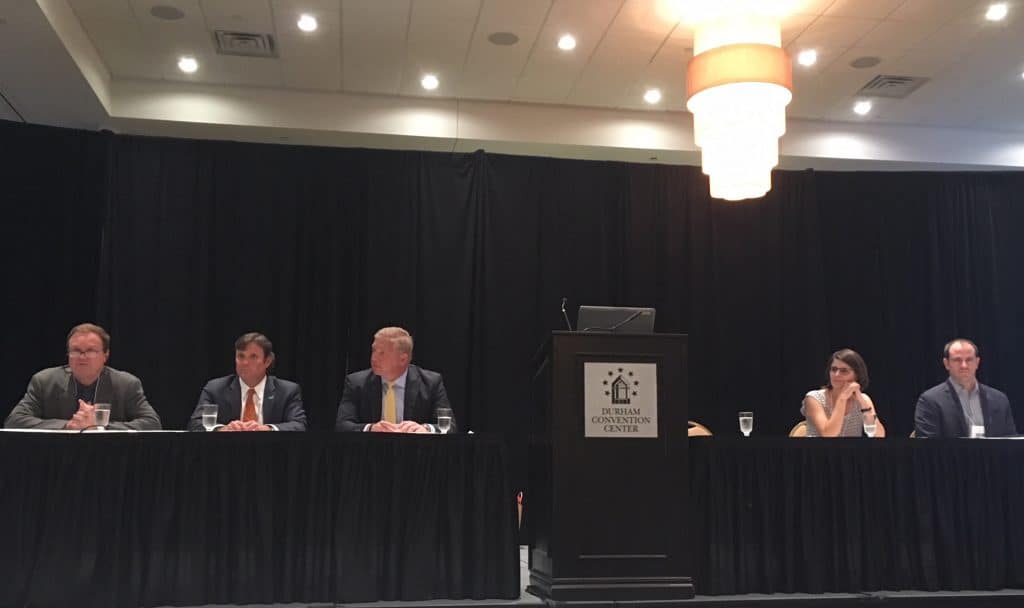
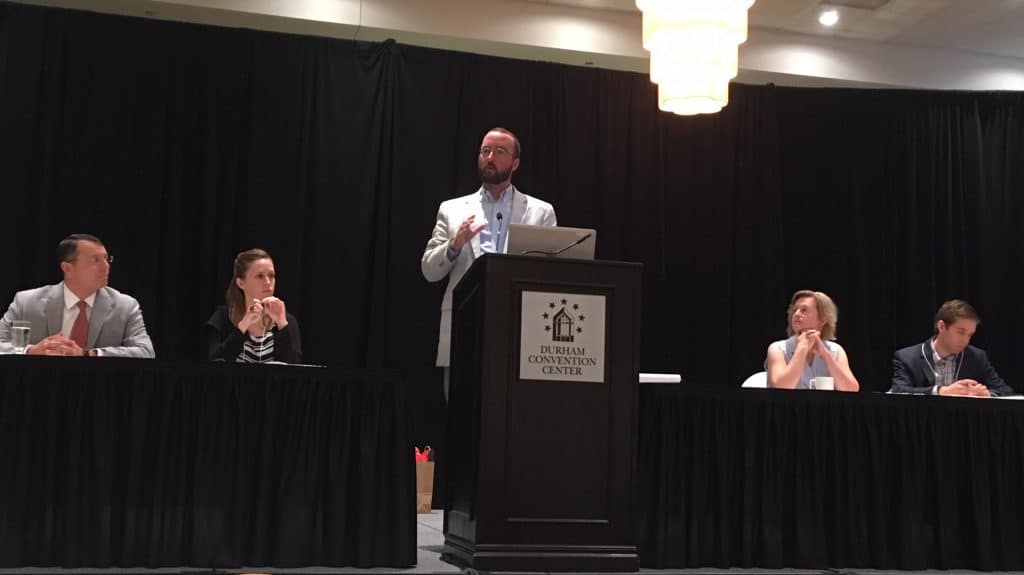
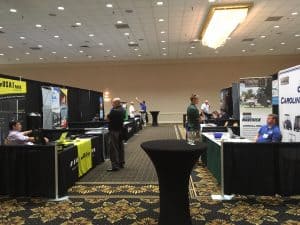
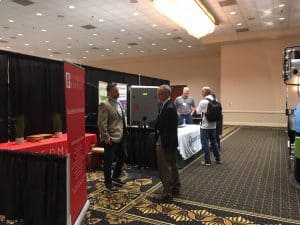
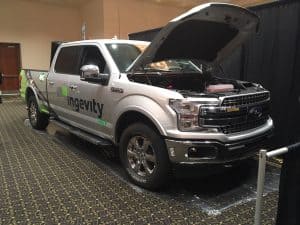
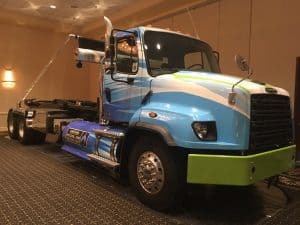 “The conference was a great success,” said Rick Sapienza, Clean Transportation Director at NCCETC. ” It brought together transportation professionals to exchange ideas on clean transportation technologies with a good mix of what is working today, and strategic thought-provoking discussion to consider and prepare for what might be coming
“The conference was a great success,” said Rick Sapienza, Clean Transportation Director at NCCETC. ” It brought together transportation professionals to exchange ideas on clean transportation technologies with a good mix of what is working today, and strategic thought-provoking discussion to consider and prepare for what might be coming 